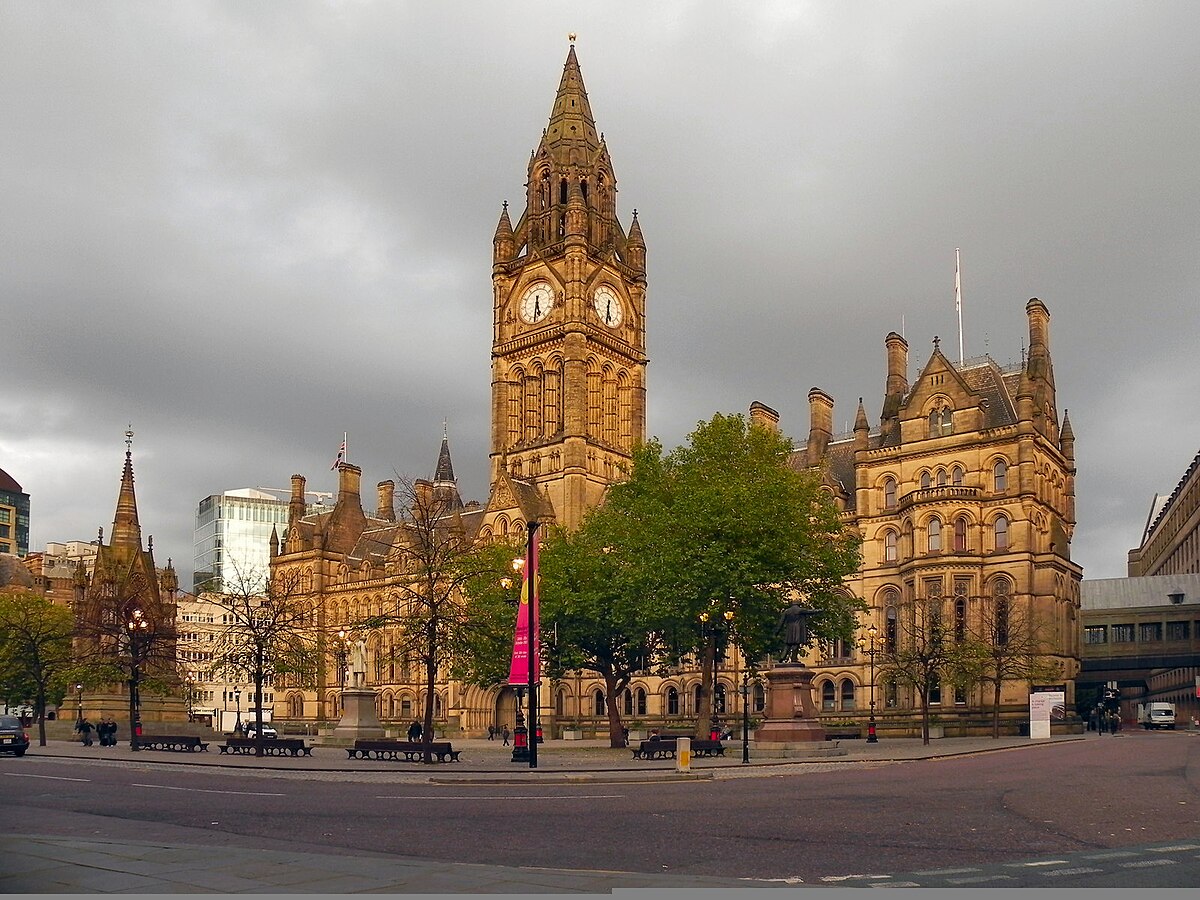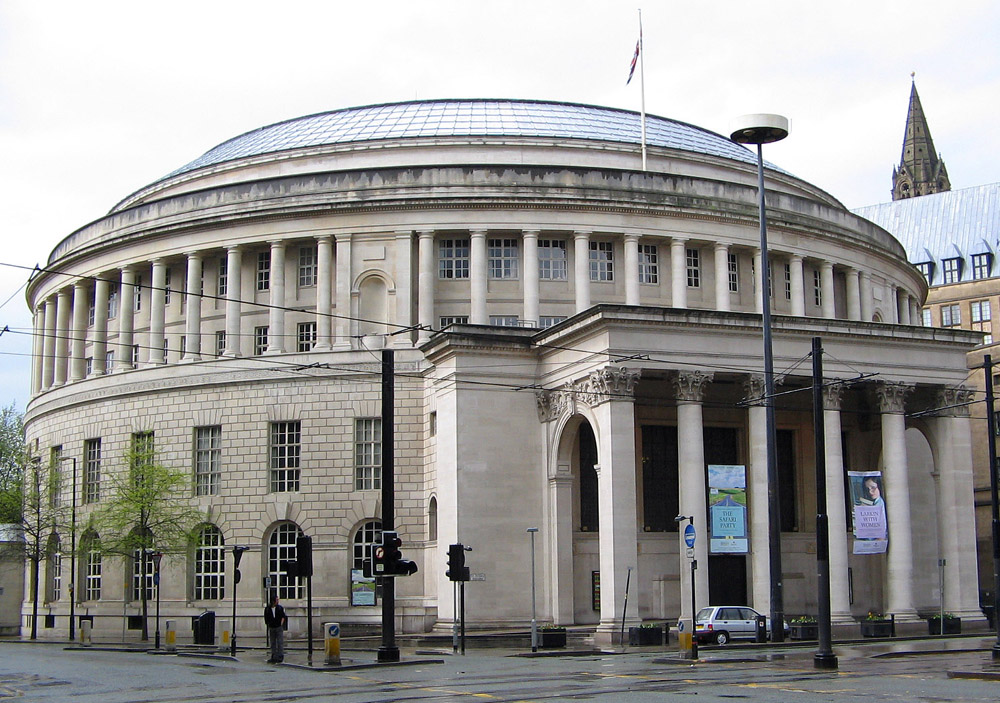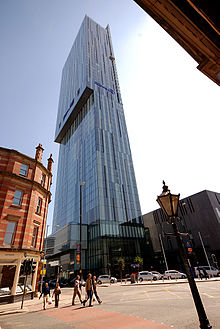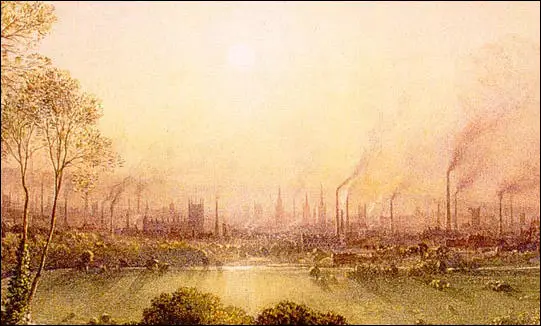- Dapatkan link
- X
- Aplikasi Lainnya
- Dapatkan link
- X
- Aplikasi Lainnya
Learn vocabulary terms and more with flashcards games and other study tools. The great majority of cotton spinning took place in the towns of south Lancashire and north Cheshire and Manchester was for a time the most productive centre of cotton processing.
 History Of Manchester Wikipedia
History Of Manchester Wikipedia
One such visitor was Alexis de Tocqueville who in 1835 found Manchester then a city of 300000 people growing at a prodigious rate.

Describe manchester as an industrial city. These factories and mines were dangerous and unforgiving places to work in. Businessmen began building factories in the town because of Manchesters large population and local coal deposits. Professor Emma Griffin explains how industrialisation and in particular the cotton industry transformed Manchester into the United Kingdoms third most populous city.
The first industrial metropolis at its apogee in full blast. At the start of the 18th century Manchester was a small market town with a population of fewer than 10000. Manchester in South-east Lancashire rapidly rose from obscurity to become the premier center of cotton manufacture in England.
Describe Manchester as an industrial city. In many respects Manchester could claim to be the first of a new generation of huge industrial cities created in the Western world during the past 250 years. The weaving of cloth.
Where the actual touch-paper of industrialisation was lit has been the subject of much debate but its first urban product was Manchester. Manchester Englandis widely known as an illustrative example of the industrial revolution from the positive aspects of economic growth and. Its famously damp climate was better for cotton manufacture than the drier climate of the older eastern English cloth manufacture centers.
Describe the causes for these effects on the health of city dwellers. In 1695 the population of Britain was estimated to be 55 million. The Industrial Revolution witnessed a huge growth in the size of British cities.
It is the nucleus of the largest metropolitan area in the north of England. By the end of the century it had grown almost tenfold to 89000 souls. Manchester provided a pattern for the development of the Industrial City.
Start studying 252 Industrialization in Manchester. Manchester began expanding at an astonishing rate around the turn of the 19th century as part of a process of unplanned urbanisation brought on by a boom in textile manufacture during the Industrial Revolution. First the workers were exposed to horrendous working conditions in the factories and mines that emerged in the early years of the revolution.
This represents a 60 growth rate in just 40 years. From this foul drain the greatest stream of human industry flows out to fertilize the. This is one of the great spectacles of contemporary Britain.
The history of Manchester encompasses its change from a minor Lancastrian township into the pre-eminent industrial metropolis of the United Kingdom and the world. In 1773 Manchester was a market-town with a population of 27000. This was largely due to geography.
One of the main impacts it had was how it changed life for working-class people. Manchester was one of the centres of textile manufacture during the Industrial Revolution. The obvious place to build a factory was therefore in a town.
By 1801 the population had climbed to 90000 and by 1861 it was 355000. Ready acces to waterpower available labor outlet to sea rapid unplanned growth unhealthy place for poor people bad conditions for children to work. Manchester city and metropolitan borough northwestern England.
Video describe the living conditions in Manchester during the Industrial Revolution. By 1801 the year of the first census it was 93 million and by 1841 159 million. In 1835 the French historian and social observer Alexis de Tocqueville journeyed to England and recorded in his diary his impression of a visit to the industrial city of Manchester.
Manchester England is seen as the first industrial city because it was the first city to be dominated by industrial factories. Manchester After Engels The city that was the global epicenter of the Industrial Revolution is now being remade by globalized post-industrial capital. From its towering mills bustling warehouses and crowded streets came new ways to live work and think which transformed lives.
Manchester is a good example of how a town was changed by the Industrial Revolution. As usual this was a misleading figure. The growth of the city in terms of those times was astonishing.
The Industrial Revolution began in Britain in the 1700s and had a profound impact on the world. Describe Industrilization in United States and Europe. The industry was the manufacture of cotton and the city was the commercial heart of that industry Manchester.
Manchester was the worlds first industrial city. Describe the effects of industrialization and urbanization on the health of people living in Manchester and other similar cities during the Industrial Revolution.
 History Of Manchester Wikipedia
History Of Manchester Wikipedia
 History Of Manchester Wikipedia
History Of Manchester Wikipedia
Manchester The First Industrial City Grimshaw Origins And History
 Life Of A Factory Worker Flashcards Quizlet
Life Of A Factory Worker Flashcards Quizlet
 Industrial Manchester England 1760 1825 Ils202 Fall11
Industrial Manchester England 1760 1825 Ils202 Fall11
Manchester The First Industrial City Grimshaw Origins And History
Manchester The First Industrial City Grimshaw Origins And History
Manchester The First Industrial City Grimshaw Origins And History
 Top 10 Books About Manchester Books The Guardian
Top 10 Books About Manchester Books The Guardian
 Manchester In The 19th Century The British Library
Manchester In The 19th Century The British Library
Manchester The First Industrial City Grimshaw Origins And History
Manchester The First Industrial City Grimshaw Origins And History
Manchester The First Industrial City Grimshaw Origins And History
 Cottonopolis Manchester Lying Beneath The Smoke Of Fifty Steam Powered Cotton Mills And Towering Chimneys An Industry S Factors Of Production Society City
Cottonopolis Manchester Lying Beneath The Smoke Of Fifty Steam Powered Cotton Mills And Towering Chimneys An Industry S Factors Of Production Society City
 History Of Manchester Wikipedia
History Of Manchester Wikipedia
 Lowell Story Of An Industrial City Seeds Of Industry U S National Park Service
Lowell Story Of An Industrial City Seeds Of Industry U S National Park Service
Manchester The First Industrial City Grimshaw Origins And History
 Manchester In The 19th Century The British Library
Manchester In The 19th Century The British Library


Komentar
Posting Komentar